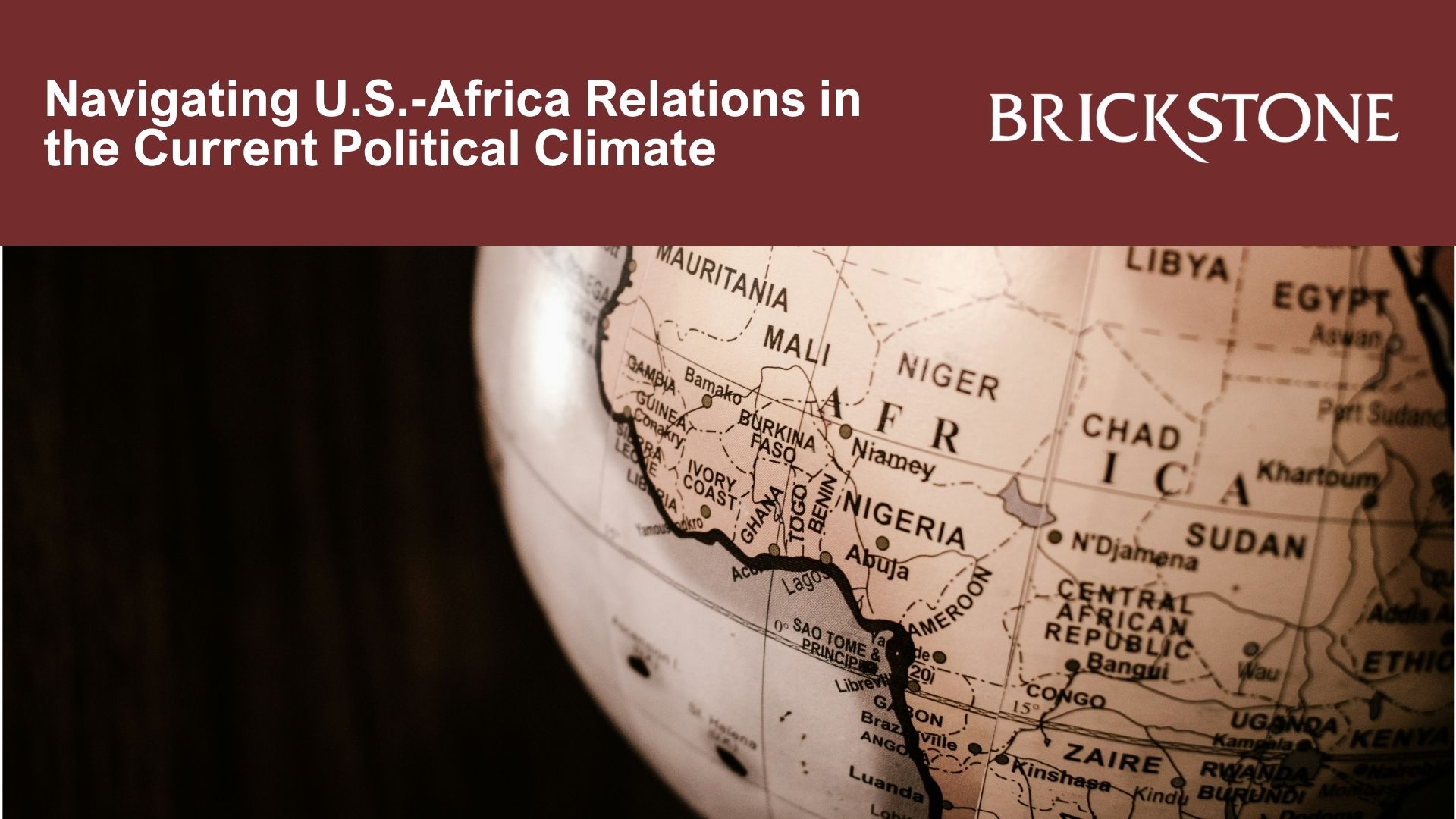Navigating U.S.-Africa Relations in the Current Political Climate
Navigating U.S.-Africa Relations in the Current Political Climate
The evolving landscape of U.S. foreign policy under President Trump’s administration presents both challenges and opportunities for African nations. Understanding these dynamics is crucial for policymakers, business leaders, and development organisations aiming to adapt to shifts in international relations.
Reevaluating Foreign Aid: A Paradigm Shift?
The recent executive order mandating a 90-day pause and review of all U.S. foreign aid signals a potential restructuring of assistance programs. In 2023, the U.S. disbursed approximately $14.9 billion to Africa, funding initiatives in healthcare, education, infrastructure, and governance reforms. However, this new directive raises critical questions. Will African countries experience funding cuts? If U.S. aid is reduced, nations reliant on American assistance for healthcare, such as HIV/AIDS programs under PEPFAR, and education, including USAID-funded projects, may face setbacks. There is also the possibility that aid could be reallocated, shifting resources toward U.S. strategic interests, potentially favoring security-based partnerships over humanitarian initiatives.
While these changes pose risks, they also present opportunities for African governments to enhance self-reliance by exploring alternative funding sources such as stronger tax collection systems or partnerships with European and Asian donors.
Shifting Focus to Trade: Beyond Dependency
A growing consensus suggests that Africa’s long-term growth is best supported through trade rather than aid. The Trump administration has previously expressed skepticism toward traditional aid models, advocating for an economic relationship that prioritizes business partnerships over dependency. One key policy in this regard is the African Growth and Opportunity Act (AGOA), which allows duty-free exports from eligible African nations. However, there are concerns that the U.S. might reassess its terms, potentially introducing tariff barriers that could affect African exporters.
At the same time, private-sector investments are expected to increase, with the U.S. International Development Finance Corporation (DFC) focusing on financing major projects in energy, agriculture, and digital infrastructure. African nations can position themselves to benefit from this by creating investor-friendly policies. While a trade-first approach encourages self-sufficiency, it may not immediately address urgent humanitarian concerns. Therefore, countries must negotiate favorable terms that balance economic interests with social welfare.
Engaging Africa’s Youth: The Key to Future Prosperity
With Africa’s median age at just 19 years, the continent is home to one of the world’s youngest populations. This demographic shift presents an opportunity for economic transformation if properly harnessed. Entrepreneurship and innovation will be crucial, and programs like the Young African Leaders Initiative (YALI) and the Millennium Challenge Corporation could play a pivotal role in providing young Africans with the skills and mentorship needed to drive economic change.
However, there is uncertainty over whether these programs will maintain their current levels of funding. In addition to entrepreneurship, technical education and vocational training partnerships with the U.S. could equip young Africans with job-ready skills in fields such as artificial intelligence, fintech, and renewable energy. The challenge, however, lies in job creation. Without structured employment strategies, the youth bulge could lead to rising unemployment and social unrest. U.S. firms investing in African markets should integrate workforce development programs to absorb young talent and contribute to long-term economic stability.
Energy Diplomacy and Economic Growth: A New Era?
The U.S. administration’s evolving stance on energy has potential ramifications for Africa’s energy sector. Policies affecting fossil fuels, renewable energy, and infrastructure investments could reshape Africa’s approach to energy security. If the U.S. prioritizes domestic energy production and scales back overseas fossil fuel investments, African oil-producing nations such as Nigeria and Angola may need to seek alternative investors. On the other hand, a push toward clean energy could create new opportunities for U.S.-Africa collaborations in solar, wind, and hydroelectric projects.
Countries like Kenya, already a leader in renewable energy, could benefit from increased funding and technological support. However, a shift in focus from fossil fuels to renewables without adequate transition strategies could lead to energy supply gaps, making it essential for African nations to plan strategically for a balanced energy future.
Navigating Geopolitical Tensions: U.S.-China Rivalry
As the U.S.-China geopolitical rivalry intensifies, African nations must carefully navigate their diplomatic and economic engagements to maximize benefits while minimizing risks. Trade wars and supply chain disruptions could affect African economies that rely on Chinese infrastructure projects through the Belt and Road Initiative (BRI). The U.S., seeking to counterbalance China’s influence, may offer alternative funding and trade agreements, presenting both challenges and opportunities.
African leaders must ensure that they negotiate favorable deals without becoming entangled in great-power competition. In addition to economic implications, military and security considerations are also at play. If the U.S. prioritizes counterterrorism partnerships in Africa, particularly in regions such as the Sahel and the Horn of Africa, security assistance may increase. However, African nations must ensure that such arrangements align with their broader development goals and do not come at the expense of economic growth and sovereignty.
Strategic Adaptation for African Nations
As U.S. foreign policy continues to evolve, African nations must take a proactive approach to adapt to these changes. Diversifying economic partnerships will be crucial to avoiding over-reliance on any single foreign power. Enhancing trade policies and leveraging new opportunities from a shift toward trade over aid can provide long-term economic benefits. Investing in youth development will be key to creating a sustainable workforce for future industries, while monitoring global energy trends will help African nations align their policies with shifts in energy investments.
Additionally, maintaining balanced diplomacy in the face of U.S.-China tensions will allow African countries to safeguard their interests while benefiting from global partnerships. By staying informed and strategically responsive, African nations can turn potential challenges into opportunities for long-term prosperity.
This article by Brickstone reviews the Carnegie Endowment publication on The Six Areas in Trump’s Executive Orders that Countries in Africa and the Global South Should Pay Attention To.
Read the complete publication here





